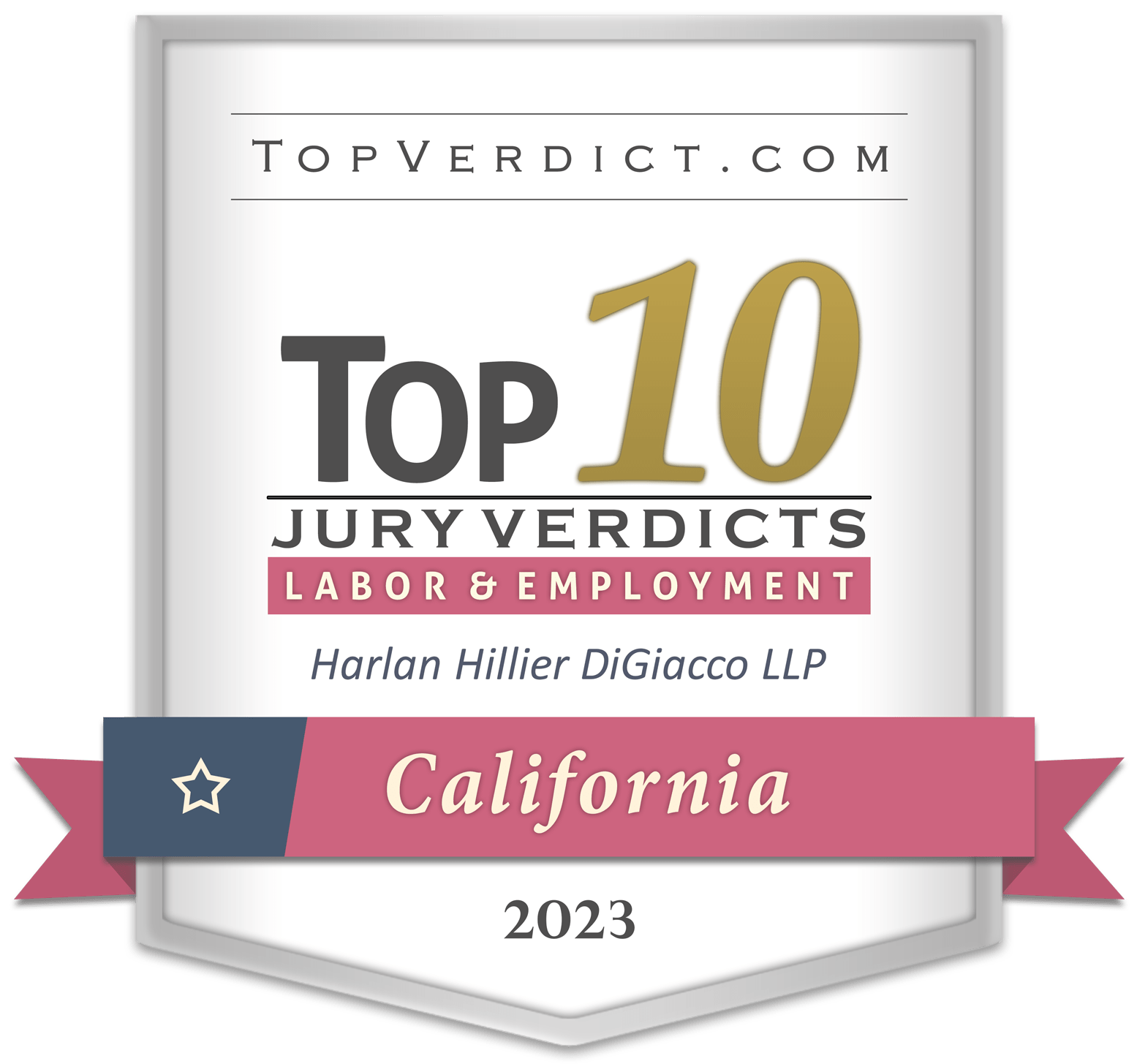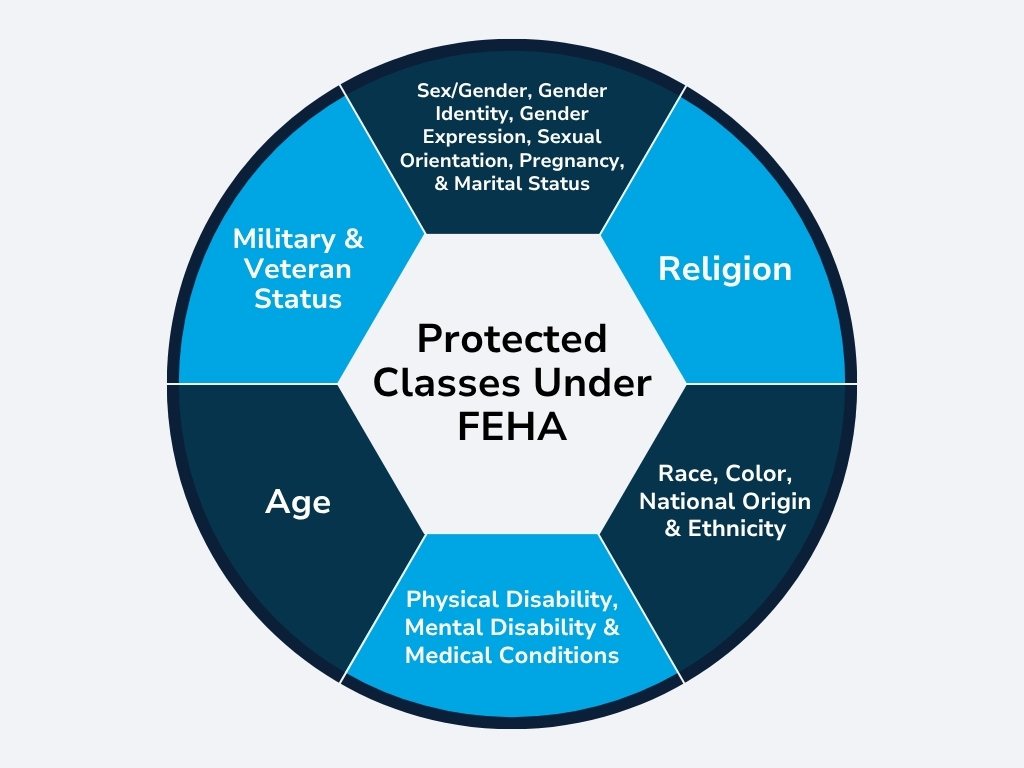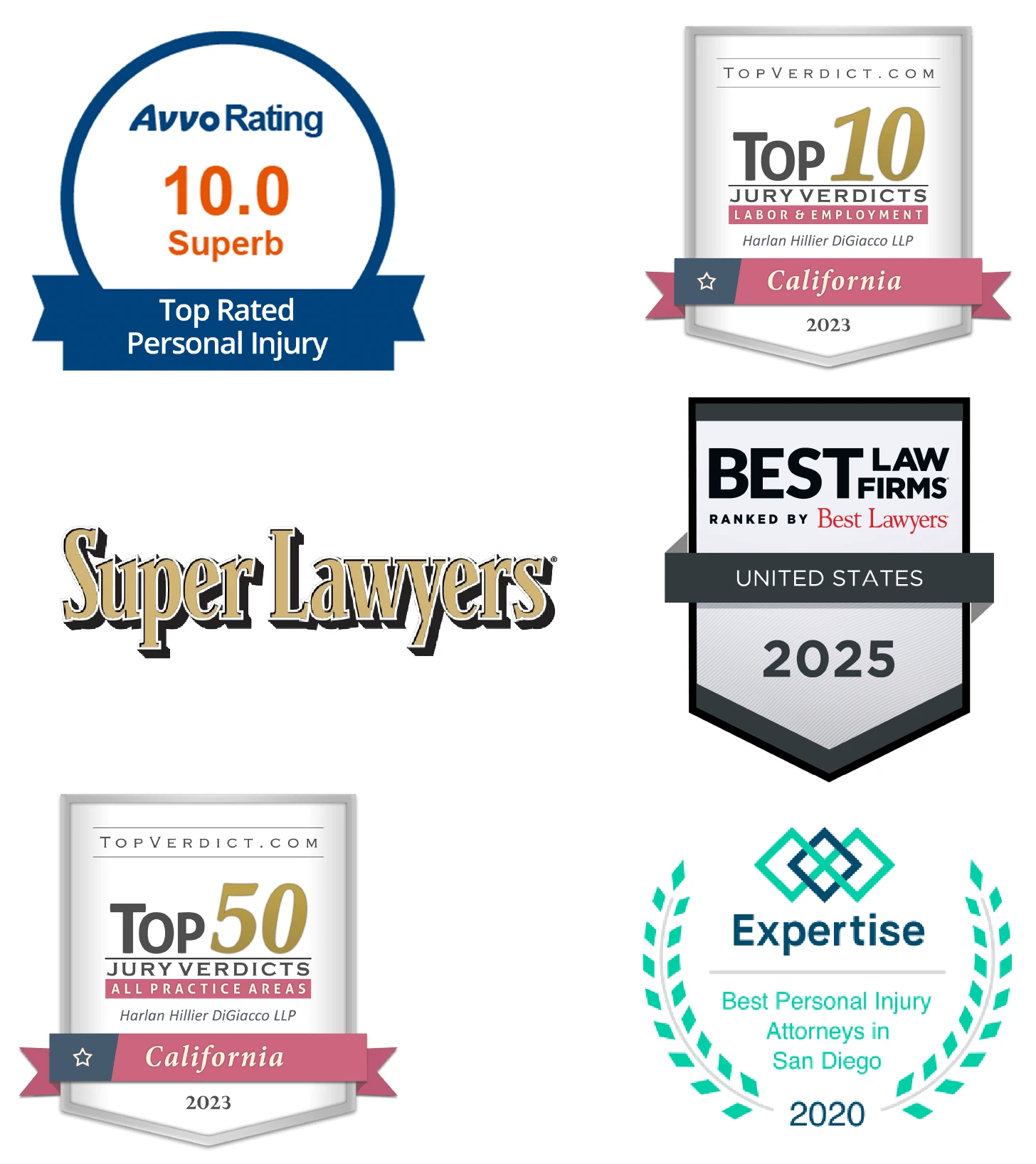No one should ever feel like they were passed over for a job, denied a promotion, or treated unfairly at work simply because of who they are. And yet, for many hardworking people, this kind of discrimination still happens subtly and too often.
 Maybe you’ve been made to feel uncomfortable because of your age. Maybe a boss made assumptions about your ability to work after learning you’re pregnant. Or maybe you’ve always sensed something wasn’t quite right when it came to how you were treated compared to others.
Maybe you’ve been made to feel uncomfortable because of your age. Maybe a boss made assumptions about your ability to work after learning you’re pregnant. Or maybe you’ve always sensed something wasn’t quite right when it came to how you were treated compared to others.
If any of that sounds familiar, you’re not alone, and more importantly, you have rights.
The Fair Employment and Housing Act (FEHA) offers some of the strongest protections for employees in the country, and understanding the protected classes under the Fair Employment and Housing Act is a critical first step in recognizing whether what happened to you was not only wrong but also against the law.
At Harlan Hillier DiGiacco, we don’t just know this law, but we’ve used it to help people like you stand up, speak out, and get justice. Our employment attorneys believe that no case is ever “too small” when it’s your life and your livelihood at stake. If you think your employer crossed a line, we’ll help you stand your ground.
Read on to learn more about what is protected under FEHA and how to recognize a violation, and what you can do about it.
And if you’re ready to talk to someone who actually listens, call us at (619) 330-5120 or fill out our online form. Your consultation is private and 100% free.
What Is the Fair Employment & Housing Act (FEHA)?
The Fair Employment and Housing Act (FEHA) is California’s main law that protects people from discrimination, harassment, and retaliation in both work and housing.
FEHA protected classes include a wide range of personal traits. If you’ve been treated unfairly at work because of who you are, there’s a good chance this law was violated.
Here are a few key things to know:
- If a company has five or more employees, it must follow FEHA’s rules.
- FEHA doesn’t just protect you after you’re hired. It applies during job interviews, promotions, training opportunities, and even when you’re let go. Discrimination at any point is illegal.
- It prohibits harassment and retaliation. That means your boss, manager, or even a coworker can’t create a hostile work environment or punish you for reporting unfair treatment.

What Is Protected Under The Fair Employment And Housing Act?
FEHA protected classes refer to a group of people who share certain characteristics that the law says can’t be used as a reason to discriminate against them. These might include things like race, age, gender, or disability status.
Under FEHA, the list of protected classes is especially broad, often offering more protections than federal law. If an employer makes decisions like hiring, firing, demotion, or harassment based on your membership in one of these groups, that could be unlawful discrimination.
Here’s a closer look at the FEHA protected classes:
Race, Color, and National Origin
- Refusing to hire someone because of the color of their skin or cultural background.
- Denying promotions based on assumptions about someone’s ethnicity.
- Enforcing grooming or appearance standards that disproportionately impact specific racial groups, such as banning natural hairstyles.
Religion
- Denying time off for religious holidays or prayer breaks.
- Refusing to allow religious clothing like hijabs, yarmulkes, or turbans.
- Treating someone unfairly because they don’t practice a religion.
Sex/Gender, Gender Identity, and Gender Expression
- Firing someone for being transgender or non-binary.
- Enforcing dress codes that target or exclude specific gender expressions.
- Making offensive comments or jokes about someone’s gender identity.
Sexual Orientation
- Refusing to hire someone because they are gay, lesbian, or bisexual.
- Denying equal benefits to same-sex partners.
- Allowing harassment based on who someone is dating or married to.
Physical or Mental Disability
- Refusing to provide reasonable accommodations like a modified work schedule, ergonomic desk, or time off for medical treatment.
- Terminating someone because they disclosed a disability.
Medical Condition
- Firing someone because they have (or had) cancer or a genetic condition that may affect their health.
- Treating someone as a liability because of a past serious medical diagnosis, even if they’re currently healthy.
Marital Status
- Passing someone over for promotions because they are single, recently divorced, or widowed.
- Favoring married employees under the assumption they’re “more stable.”
Pregnancy, Childbirth, and Related Conditions
- Failing to provide pregnancy disability leave as required by law.
- Refusing light duty or breaks recommended by a doctor during pregnancy.
- Letting someone go because they recently gave birth or need time off to recover.
Military or Veteran Status
- Not hiring a qualified veteran because of assumptions about PTSD or deployment.
- Refusing to accommodate military training or leave for active duty.
- Reducing hours or responsibilities because someone is in the reserves.
Age (40 and Over)
- Choosing not to hire someone because they “don’t fit the youthful culture.”
- Pushing older workers into early retirement.
- Reassigning job duties or denying training to older employees without valid reason.
When It May Not Be Discrimination Under FEHA
Not every decision involving a protected class is considered illegal under the Fair Employment and Housing Act. In limited situations, employers may be allowed to consider certain traits, like hiring a female caregiver for intimate personal care, casting a teenager for a teenage role in a film, or requiring a religious leader to be a member of that faith.
These exceptions are rare and tightly regulated. An employer can’t justify discrimination based on personal preference or assumptions.
Trying to figure out whether something counts as discrimination under FEHA can be confusing. The line between unfair treatment and illegal behavior isn’t always clear. If something doesn’t sit right, such as if you feel singled out, pushed out, or treated differently in a way that relates to your identity, health, or personal life, then it’s worth a conversation.
At Harlan Hillier DiGiacco, we listen first. Then, we help you understand what the law says, how it applies to your situation, and whether you may have a claim worth pursuing. Call us at (619) 330-5120 or fill out our online form for a free, no-obligation consultation. We’ll help you make sense of what happened and what comes next.
What To Do If You Suspect Discrimination
If you believe you’ve been treated unfairly based on any of the protected classes under the Fair Employment and Housing Act, you don’t have to face this alone. Discrimination can be subtle or obvious, but either way, it’s serious, and there are steps you can take to protect yourself.
- Start Documenting: Write down what happened, including dates, times, who was involved, and exactly what was said or done. Save any emails, texts, performance reviews, or other communications that may help show a pattern of unfair treatment.
- Follow Internal Procedures: If your workplace has a policy for reporting discrimination or harassment, use it. This may involve speaking with HR or submitting a written complaint. Make a copy of everything you submit.
- Talk to an Employment Attorney at Harlan Hillier DiGiacco: Understanding what is protected under the Fair Employment and Housing Act can be complex, and your time to act may be limited. Speaking with an experienced employment lawyer is one of the most important steps you can take.
When Work Turns Against You, Harlan Hillier DiGiacco Is in Your Corner
Being mistreated at work for something that’s part of who you are, such as your age, your race, your pregnancy, your identity, leaves you feeling overlooked and disrespected. At Harlan Hillier DiGiacco, we don’t just see a legal issue; we see a person who deserves to be heard, understood, and protected.
If you’re questioning whether what happened to you was discrimination, let’s talk. We’ll walk you through your employment rights and your options.
Reach out to us online or call (619) 330-5120 today for a 100% free case review.
Related Resources
If you found this FEHA protected classes content helpful, please view the related topics below:
- Workplace Harassment Lawyer
- Occupational Therapist Wins $9.3M in Workplace Discrimination Lawsuit After Unlawful Termination
- San Diego Wrongful Termination Attorney
Contact us if you have specific questions on the matter or if you’d like to schedule a free consultation.


